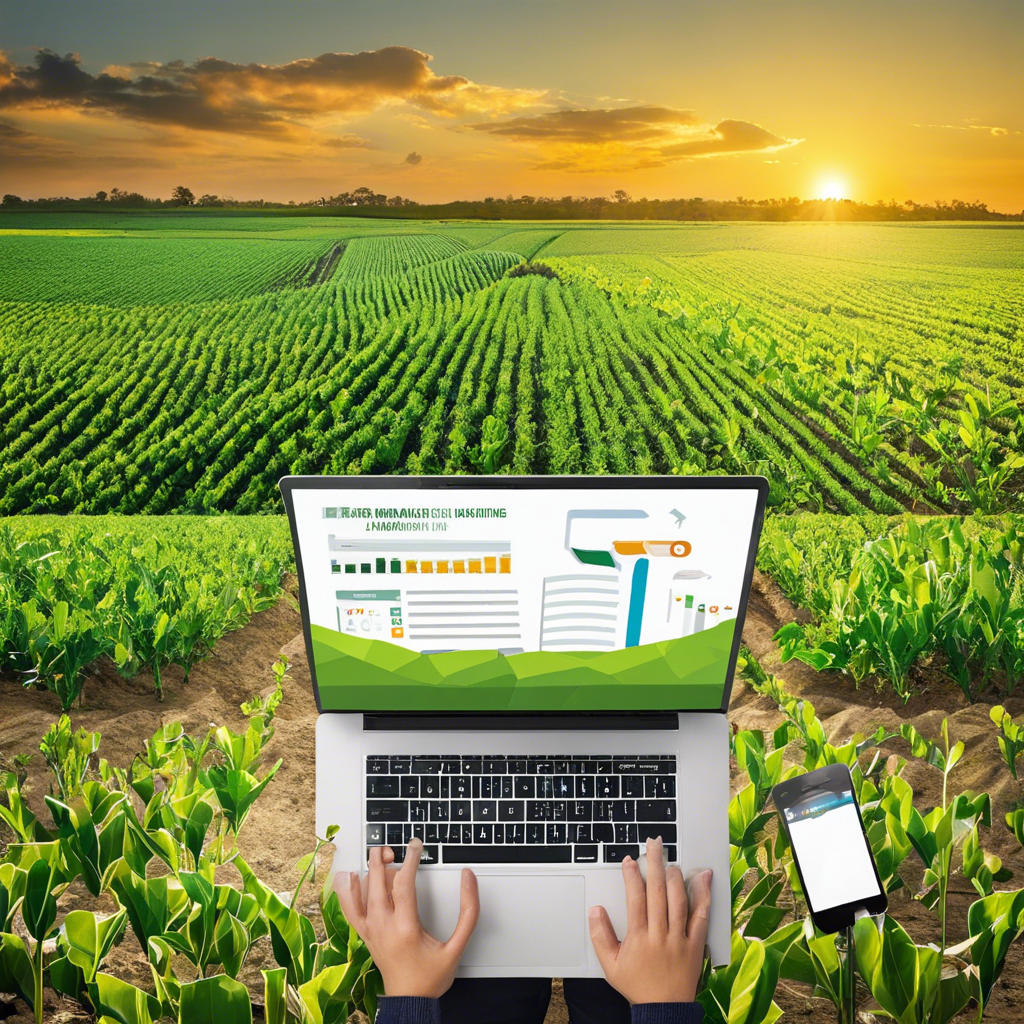Exploring digital marketing’s influence in the agriculture sector, boosting farm visibility online.
The agriculture sector is undergoing a digital transformation, and digital marketing plays a pivotal role in this evolution. In an industry traditionally rooted in physical markets and word-of-mouth promotions, the advent of digital marketing has opened new avenues for farmers and agricultural businesses to connect with a broader audience. This article delves into the various ways digital marketing is shaping the agriculture sector, its impact on consumer engagement, and the future trends that promise to revolutionize farming operations.
The Digital Revolution in Agriculture
The agricultural industry’s embrace of digital marketing is a significant leap towards modernization. Here’s how this digital transformation is taking place:
The Need for Digital Marketing in Agriculture
Farmers are increasingly recognizing the power of digital marketing in promoting their produce and services. The ability to reach a global audience through online platforms offers a stark contrast to the limitations of traditional marketing methods.
For instance, a farmer selling organic vegetables and fruits can use social media campaigns and targeted online ads to attract health-conscious consumers. This approach transcends the boundaries of physical markets, enabling farmers to engage with customers worldwide.
The shift to digital marketing is further propelled by the changing consumer behavior. As consumers increasingly rely on the internet for information and purchasing decisions, agricultural businesses can no longer ignore the potential of online marketing.
Online Platforms and Consumer Engagement
Digital marketing leverages various online platforms to engage with consumers, including:
Social Media
Farmers can create social media profiles on platforms like Instagram, Facebook, and Twitter to showcase their farms, share updates, and interact directly with consumers. For instance, a #farmlife hashtag on Instagram offers a glimpse into the day-to-day operations of farms, creating a connection between farmers and their followers.
Websites and Blogs
Agricultural businesses can create dedicated websites to provide detailed information about their operations, products, and services. Blogs, in particular, offer a dynamic way to engage with consumers, share industry news, and address consumer concerns.
Online Marketplaces
Digital marketplaces like Amazon and eBay offer opportunities for farmers to sell their produce directly to consumers. These platforms can also be used to launch new products, reach new markets, and gather consumer feedback.
Key Benefits of Digital Marketing for Farmers
Brand Building and Customer Engagement
Digital marketing empowers farmers to build their brand identity and engage with customers directly. By creating a digital presence, farmers can control their narrative and communicate their unique selling points to a wide audience.
Increased Market Reach
Online marketing expands the geographical reach of agricultural businesses. Farmers can connect with potential customers not only in their local areas but across the country and even globally.
Targeted Advertising and Cost-Effectiveness
Digital marketing platforms offer targeted advertising options, allowing farmers to reach specific consumer segments with relevant messages. This precision advertising is often more cost-effective than traditional advertising methods.
Additionally, digital marketing provides actionable insights through analytics and consumer feedback. Farmers can use these insights to refine their marketing strategies, improve their products and services, and better understand their target audience.
Future Trends in Digital Marketing for Agriculture
The future of digital marketing in the agriculture sector promises exciting advancements. Here are some trends to watch:
Agricultural Influencers and Content Creators
Influencer marketing is becoming increasingly popular in the agricultural sector. Farmers and agricultural experts can leverage their industry knowledge to become influencers and content creators, sharing valuable insights and promoting sustainable farming practices.
Integration of AI and Machine Learning
Artificial Intelligence and Machine Learning technologies are expected to play a significant role in digital marketing for agriculture. These technologies can analyze large amounts of data to identify consumer trends, improve content recommendation, and enhance overall marketing strategies.
Virtual and Augmented Reality Experiences
Virtual and Augmented Reality technologies can revolutionize the way consumers engage with agricultural products. Farmers can create immersive experiences, allowing consumers to virtually tour farms, understand farming processes, and appreciate the origins of their food.
Q&A
How can farmers get started with digital marketing?
Farmers can begin their digital marketing journey by creating social media profiles and engaging with online agricultural communities. They can also consider setting up a website or blog to provide detailed information about their farm and products.
What are the potential challenges of digital marketing in agriculture?
One of the main challenges is the digital divide, where some farmers may lack the resources or technical skills to effectively engage in digital marketing. Additionally, maintaining a consistent online presence and creating engaging content can be demanding tasks for busy farmers.
How can farmers use digital marketing to differentiate their products?
Farmers can highlight the unique qualities of their products through engaging content and storytelling. Sharing the story behind the product, its farming process, and the people involved can help build a strong brand identity and attract consumers who value these aspects.
Conclusion
The integration of digital marketing in the agriculture sector is a game-changer. It provides farmers with a powerful tool to connect with consumers, build their brand, and expand their market reach. As the industry continues to evolve, embracing digital marketing strategies will become increasingly vital for farmers to stay competitive and relevant in the digital age. By leveraging the benefits of digital marketing, the agriculture sector can cultivate a stronger online presence and foster deeper connections with consumers worldwide.
Suggested External Links:
1. Agriculture Marketing — NOAA’s National Centers for Environmental Information (NCEI)
2. USDA’s LFPP Planning Grants for Local Food Promotion
3. Agricultural Marketing — Wikipedia
